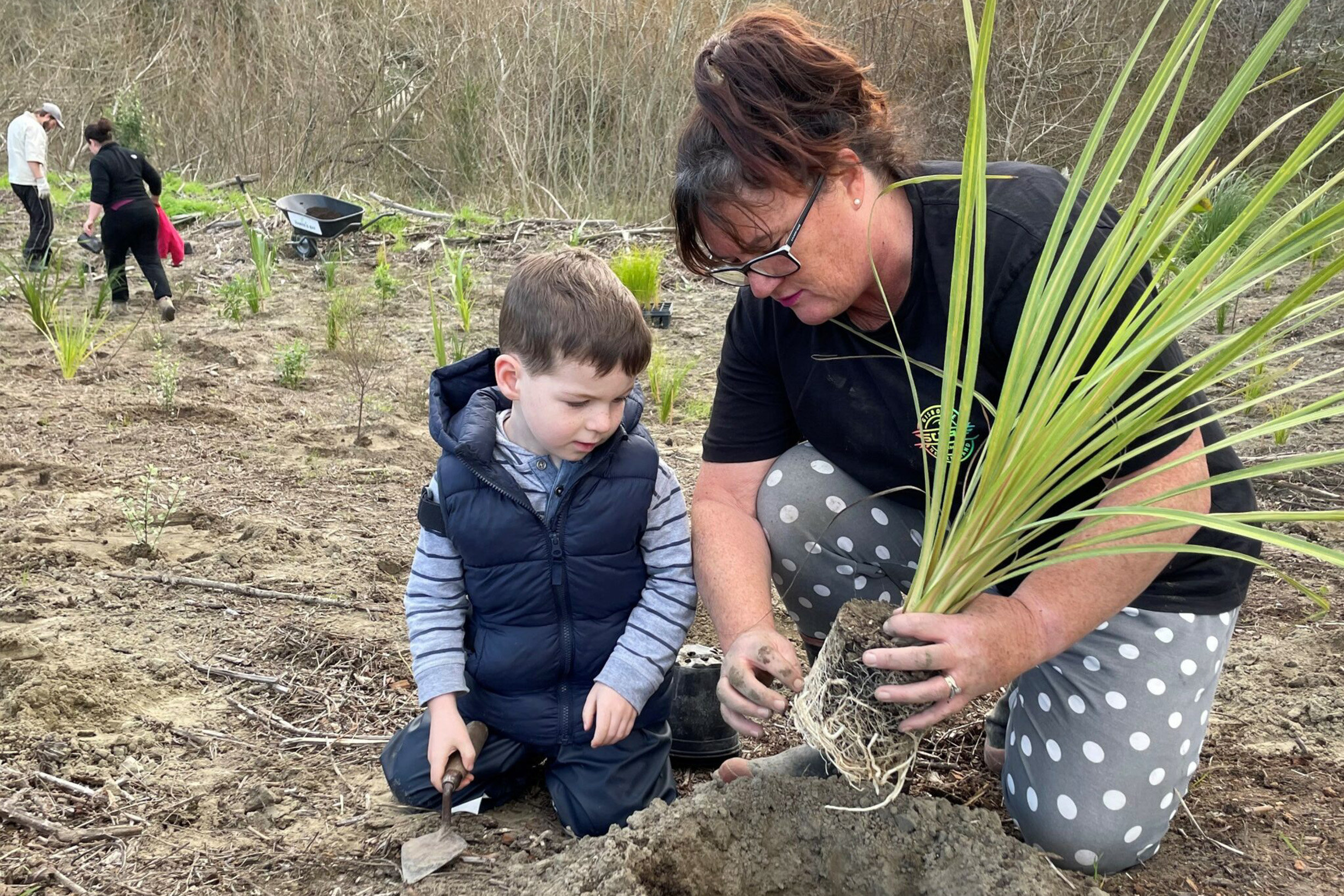- Policy
- Structure
- Action Plan
- Risk Assessment
- Initiatives
- Participation in the 30 by 30 Alliance for Biodiversity
- Data
Policy
The Oji Group implements biodiversity conservation initiatives under the Oji Group Biodiversity Commitment and No Deforestation and No Conversion Commitment.
The Oji Group Biodiversity Commitment
With a strong commitment to continuing nature-positive management and achieving the targets of the Kunming-Montreal Global Biodiversity Framework (GBF), the Oji Group pledges to avoid and reduce contributions to drivers of nature loss, reduce threats to biodiversity, and restore and regenerate ecosystems.
Commitment
While maintaining our sustainable forest management and wood material procurement practices, we commit to avoiding and reducing drivers of nature loss in our operations and value chain, and to restoring and regenerating ecosystems by 2030.
Actions we take to avoid and reduce contributions to drivers of nature loss:
- We are committed to “No Deforestation and No Conversion.” (GBF Target 1)
- We maintain the water resource conservation function of forests and contribute to the creation of freshwater resources. (GBF Target 11)
- We prevent nature loss by reducing or eliminating air, water and waste pollution. (GBF Target 7)
- We mitigate pollution risks and the impact of pollution from plastics throughout our value chain by expanding sales of renewable eco-friendly paper products. (GBF Target 7)
- We mitigate climate change, which is closely related to biodiversity, by maintaining and promoting the absorption and sequestration of atmospheric carbon dioxide through our self-managed plantations and natural forests. (GBF Target 8)
Targets for reducing or eliminating air, water and waste pollution
Actions we take to restore and regenerate ecosystems:
- We restore and regenerate the ecosystems of our company-owned forests through the regeneration of natural forests. (GBF Target 2)
- We restore and regenerate the ecosystems outside our company-owned land through the establishment of ecological corridors. (GBF Target 2)
Actions we take to engage stakeholders:
- We conduct our business activities while respecting the human rights of stakeholders, including indigenous peoples and local communities. (GBF Target 1, 22)
- We provide access to remedy for stakeholders in accordance with the Guiding Principles on Business and Human Rights endorsed by the UN Human Rights Council. (GBF Target 9)
March 28, 2025
Representative Director of the Board,
President and CEO
Oji Holdings Corporation
Hiroyuki Isono
No Deforestation and No Conversion Commitment
December 26, 2024
Forests possess a variety of public benefits in addition to their function of producing wood resources. These benefits include the absorption and sequestration of carbon dioxide, biodiversity conservation, soil conservation, watershed protection, and providing a place for nurturing culture and tradition. The Oji Group, through its history of over 150 years and its operations rooted in forests, understands these rich functions and values of forests and has grown and managed forests working together with local communities.
Large-scale deforestation is ongoing in many parts of the world, and the world's forest area is estimated to have decreased by 178 million hectares over the 30-year period from 1990 to 2020*1. We recognize that it is our important responsibility, as a company rooted in forest-based operations, to confront this significant threat to natural ecosystems anew and contribute to the realization of a sustainable society.
Commitment
The Oji Group Commits to No Deforestation and No Conversion*2
Scope and Targets
The Oji Group has been practicing sustainable forest management and wood material procurement without deforestation and conversion through various initiatives. We will continue these efforts, further improve them, and consistently achieve no deforestation and no conversion.
The scope of our commitment includes our own forest management as well as the supply chain for the wood raw materials we procure*3. By 2025, we will further improve and implement our wood raw material procurement guidelines and establish a grievance mechanism in accordance with the United Nations Human Rights Council's "Guiding Principles on Business and Human Rights".
Respect for Human Rights
Respect for human rights is a core element of a responsible supply chain. The Oji Group respects the human rights defined by international norms such as the "International Bill of Human Rights" and the "ILO Declaration on Fundamental Principles and Rights at Work". Additionally, we advance activities in accordance with principles such as the UN "Guiding Principles on Business and Human Rights" and "Free, Prior and Informed Consent (FPIC)". These principles are outlined in the Oji Group Human Rights Policy, and we conduct forest management and supply chain management with consideration for international human rights, including those of Indigenous Peoples, local communities, and workers.
Initiatives
1) Company-wide Structure
We have established the Sustainability Committee, chaired by the CEO and composed of directors, to deliberate on matters related to supply chain risks and their countermeasures, with oversight and supervision by the Board of Directors. Additionally, we have set up the Corporate Sustainability Division as a cross-functional management division to drive sustainability related initiatives group wide.
2) Own Forest Management
The Oji Group owns and manages an extensive 635,000 hectares of forests worldwide. Under the Oji Group Sustainable Forest Management Policy, we practice sustainable forest management that considers the environment and local communities. We have set the target to achieve a 100% forest certification rate for our own forests by 2030 in the Environmental Action Program (2030).
3) New Business Planning
When planning new businesses, we conduct risk assessments not only from an economic perspective but also considering ESG factors. When acquiring new land for forest management, we respect human rights and FPIC, verify there are no environmental or social risks, or take necessary measures to avoid or mitigate such risks, and make it a prerequisite to obtain forest certification.
4) Supply Chain Management
The Oji Group has established the Oji Group Sustainability Action Guidelines for Supply Chains for the procurement of raw materials. These guidelines are in accordance with internationally important principles such as human rights, labor, environment, and anti-corruption as defined by the United Nations Global Compact. Since the fiscal year 2020, we have been conducting Supplier Sustainability Surveys for main suppliers, and we use the results for assessing the actual situation and risk management. Moreover, in accordance with the Wood Raw Material Procurement Guidelines established under the above Action Guidelines, we require all suppliers of wood chips and pulp to produce sustainable wood materials. We have established a due diligence system for ongoing monitoring. We verify specified items such as the origin of raw materials and the status of forest certification through various methods, including traceability reports from suppliers, and conduct risk assessments. If a high risk is identified, we request additional documentation or conduct on site audits to monitor the situation. Additionally, we utilize forest certification systems*4 such as FSCTM and PEFC as tools to verify that there is no deforestation, land conversion, or human rights violations. If it is found that standards are not being met, we will engage in continuous dialogue and request improvements from the suppliers, and if improvements are not made, we will cease transactions with those suppliers.
5) Collaboration for Sustainability
We collaborate with stakeholders, including Indigenous Peoples, NGOs and suppliers such as smallholders, to support the implementation of sustainable forest management, protect and nurture rare flora and fauna, and conserve and restore ecosystems.
Information Disclosure and Policy Review
These initiatives and results are reported annually in the integrated report and on our website.
The content of this commitment and related policies will be reviewed as necessary.
Philosophy on Forest Resources
Forest resources are an excellent resource that can be regenerated through sustainable forest management. Additionally, their appropriate management and utilization can maintain and restore the diverse public benefits of forests. Not only in plantation forests but also in natural forests (secondary forests), appropriate protection and utilization can promote harmony with nature and preserve the functions of forests.
The Oji Group has developed a business model that nurtures and cyclically utilizes renewable forest resources. The appropriate use of forest resources in the processes of forest management, harvesting, and planting (including natural regeneration) does not lead to deforestation*5.
The Oji Group, which owns and manages 635,000 hectares of forests worldwide, will continue to develop this business model, maintain the public benefits of forests, and expand efforts to conserve and restore natural ecosystems, thereby contributing to the achievement of a nature-positive world.
- *1 Refer to Global Forest Resources Assessment 2020 Main report (FAO).
- *2 Deforestation or Conversion: Conversion is the permanent loss of surrounding ecosystem services due to the conversion of natural forests or HCV areas to other land uses. Minimal conversion for the sake of social and environmental benefits is generally excluded. Deforestation is one form of conversion and indicates the conversion of natural forests. The natural forests include primary forests, regenerated (second growth) forests, managed natural forests and forests that have been partially degraded (Refer to Accountability Framework initiative). HCV, High Conservation Value, indicates areas that are valuable and have high conservation importance from the perspectives of biodiversity, water resource conservation, culture, and landscape.
- *3 The Oji Group will source wood raw materials that do not originate from deforestation or conversion at least since the end of 2020. This cutoff date aligns with the global commitment outlined in SDGs' Target 15.2: "By 2020, promote the implementation of sustainable management of all types of forests, halt deforestation, restore degraded forests, and substantially increase afforestation and reforestation globally".
- *4 When utilizing certification systems, we verify whether the standards required by each certification system are appropriate in light of the policies and guidelines set forth by the Oji Group, and we also confirm their reliability. FSCTM License code: FSCTM C014119 etc.
- *5 Referring to Global Forest Resources Assessment - FRA 2025 - Terms and Definitions (FAO), the term deforestation "specifically excludes areas where the trees have been removed as a result of harvesting or logging, and where the forest is expected to regenerate naturally or with the aid of silvicultural measures".
The Oji Group owns and manages vast forests and practices sustainable forest management in consideration of the environment and local communities under our management philosophy, Harmony with Nature and Society. While our business activities and local communities depend on ecosystem services such as water, climate control and forest products, our forestry activities also impact ecosystems, natural landscapes and biodiversity.
We recognize our responsibility to manage our forests in an environmentally, socially and economically sustainable manner.
Guided by its Sustainable Forest Management Policy, the Oji Group collaborates with governments, environmental NPOs, scientific researchers, local residents, and other parties to protect and nurture endangered species, maintain and restore ecosystems and implement other initiatives in Japan and overseas.
Structure
Important matters related to biodiversity conservation are deliberated by the Sustainability Committee (Chair: CEO; Members: all COMPANY Presidents and others, held twice a year), which is monitored and supervised by our Board of Directors.
Action Plan
In its Environmental Vision 2050, the Oji Group states that it aims for a society in harmony with nature by seeking to conserve biodiversity and reduce its impact on the environment. Further, the Group has established Environmental Action Program 2030 and Environmental Action Program 2040 as milestones toward achieving this vision, and it is implementing sustainability forest management, ecosystem conservation and restoration, and collaboration with local communities and others to protect and nurture endangered species.
The Oji Group is implementing nature restoration projects to achieve the following biodiversity conservation targets, which it set in light of risk assessments.
| Metrics | Annual data |
Medium-term targets (From FY2024 through FY2033)
|
Long-term targets (From FY2019 through FY2040)
|
|||||||
|---|---|---|---|---|---|---|---|---|---|---|
| 2019 | 2020 | 2021 | 2022 | 2023 | 2024 | Targets | Progress*4 | Targets | Progress*4 | |
| Area of restored natural forests*1(ha) | 170 | 366 | 399 | 379 | 359 | 260 | 3,000 | 260 | 5,000 | 1,933 |
| Number of planted native tree species*2(seedings) | 34,827 | 60,624 | 76,433 | 61,599 | 27,480 | 60,271 | 500,000 | 60,271 | 900,000 | 321,234 |
| Area of ecological corridors formed outside own land*3(ha) | 186 | 318 | 313 | 411 | 532 | 500 | 3,500 | 500 | 6,000 | 2,260 |
| Area of natural forests connected by ecological corridors(ha) | 1,281 | 2,212 | 2,239 | 1,268 | 2,587 | 9,629 | - | 9,629 | - | 19,216 |
- *1The area where planting and other activities were carried out to restore natural forests lost due to windthrow, fire, etc.
- *2The number of trees planted within the natural forests owned.
- *3The area enclosed by fences to promote the revegetation of degraded lands between fragmented natural forests and to allow wildlife to move freely, in collaboration with landowners.
- *4Progress status is as of the end of FY2024.
The validity of the metrics and targets was reviewed by a third party, Kokusai Kogyo Co., Ltd.
Alignment with Climate Change Mitigation Activities
The Oji Group's nature-related initiatives, such as restoring natural forests and planting native tree species on its land, have reforested degraded land and increased the amount of CO2 absorbed and fixed by the land. These initiatives align with and support the Oji Group's efforts to mitigate climate change by enhancing CO2 absorption and fixation through its investments in forest conservation and afforestation. Additionally, the Oji Group's initiatives to establish ecological corridors have restored vegetation and increased CO2 absorption and fixation in areas outside its land, contributing to the mitigation of climate change.
Forest Certification
The Oji Group is working to acquire FSC™ and PEFC forest certification to ensure sustainable forest management. For example, Principle 6 of the FSC™ forest management stipulates "Environmental Values and Impacts", which requires the assessment and monitoring of the impact of activities inside and outside the forest management area, the avoidance and reduction of any anticipated adverse impact and the restoration of adversely impacted areas, as well as the maintenance, conservation and restoration of biodiversity.
To date, we have acquired FSC™ certification in Brazil*4 and other countries overseas and SGEC certification in Japan. As of the end of FY2024, 96% of our overseas plantations and 100% of our company-owned forests in Japan have received forest certifications.
The items included in forest certification audits include items related to biodiversity. For all of the Oji Group's forest certified sites, we have formulated Biodiversity Action Plans (BAPs) for reforestation, the protection and nurturing of endangered species, and ecosystem surveys (water quality surveys, soil surveys, etc.) and manage the progress of these initiatives. We regularly submit our results to third-party forest certification organizations for auditing.
- *4 FSCTM certification license code for CENIBRA in Brazil: FSCTM-C008495
Risk Assessment
Identification and Assessment of Nature-related Issues
Oji Holdings identifies and assesses the Oji Group's nature-related issues by reference to the LEAP approach developed by the Taskforce on Nature-related Financial Disclosures (TNFD). Using ENCORE and other tools, we assess our activities' dependencies and impact on nature throughout our value chain. We also identify priority locations by considering the regional characteristics of each site. In priority locations, we identify and assess short-, medium- and long-term risks and opportunities through scenario analyses.
Proximity of Operating Locations to Areas Important for Biodiversity*5
| Direct Operations | Map of Oji Group's operating locations and areas important for biodiversity |
|---|---|
| Suppliers | Map of overseas wood chip suppliers and areas important for biodiversity |
| Priority Locations*6(CENIBRA) | Map of CENIBRA'S operating locations and areas important for biodiversity |
- *5 Areas important for biodiversity referenced from UNEP-WCMC (2023) Global Critical Habitat Screening Layer (Version 2.0)
- *6 Priority locations were considered and identified in accordance with the LEAP approach*
- * An intergrated approach developed by TNFD (Taskforce on Nature-related Financial Disclosures). It assesses and manages nature-related issues in fore phases: Locate, Evaluate, Assess, and Prepare.
Locate the interfaces with nature across geographies, sectors and value chains.
Evaluate dependencies and impacts on nature.
Assess nature-related risks and opportunities to the organization.
Prepare to respond to nature-related risks and opportunities, including target setting.
When we construct our mills through large-scale land development or acquire new land through mergers and acquisitions, we assess the environmental impact on the atmosphere, water areas, soil, among others, that may be caused by the operations. As part of this environmental assessment, we also evaluate the impact on biodiversity.
Initiatives
New Zealand
Preserving and Restoring Natural Forests (Pan Pac/New Zealand)
In 2019, Pan Pac purchased forest land (total area 298 ha) just north of our Whirinaki mill. This forest land includes approx. 68 ha of well-established indigenous (native) forest. We partnered with government organizations to place the reserve into a secure Queen Elizabeth II National Trust (QEII)*7 covenant, under the name Pakuratahi Bush.
While Pan Pac will maintain ownership of the land, the QEII covenant ensures that Pakuratahi Bush will be preserved for future generations. This forest is home to native tree species such as kahikatea, matai, titoki, karaka*8, and kanuka. Unlike many other areas, it has remained largely undisturbed by livestock and pests, allowing these trees to thrive and reach their full lifespan. As a result, Pakuratahi Bush holds significant ecological and cultural value.
Since its designation as a reserve, Pan Pac has worked with experts to support the restoration of this precious natural forest. Efforts include installing fences to prevent deer damage and planting tens of thousands of native plants as part of a reforestation program.
Although Pakuratahi Bush is not generally open to the public, Pan Pac hosts events like native tree-planting activities and guided tours. These initiatives provide environmental education opportunities for the local community, including schools and indigenous groups with ties to the land.
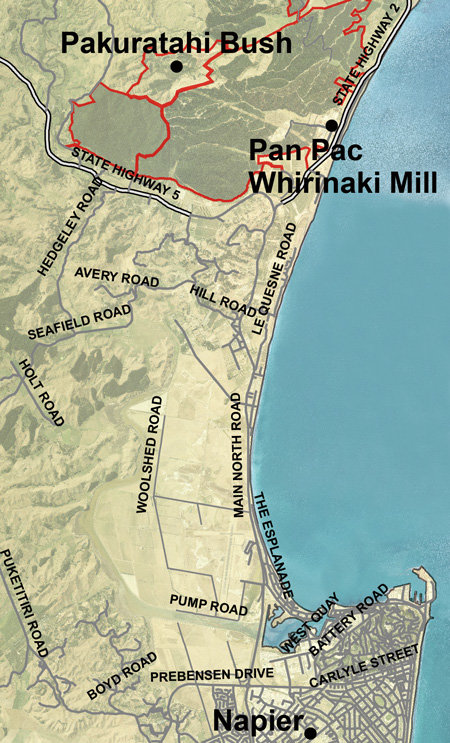
- *7 Queen Elizabeth II National Trust (QEII): https://qeiinationaltrust.org.nz/
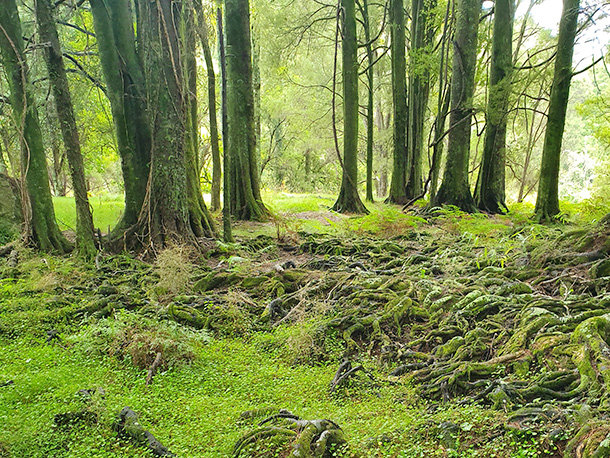
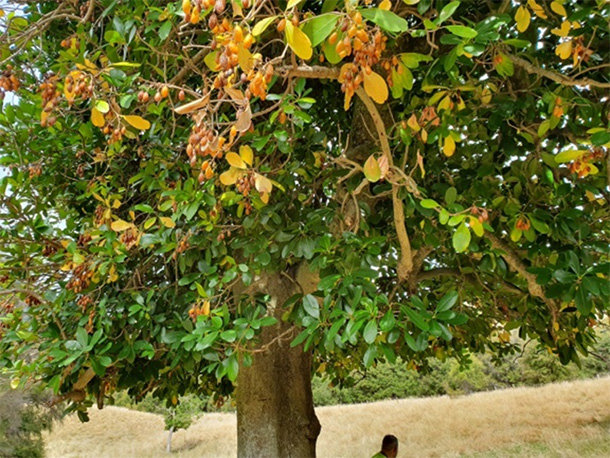
Kiwi Conservation activities (Pan Pac/New Zealand)
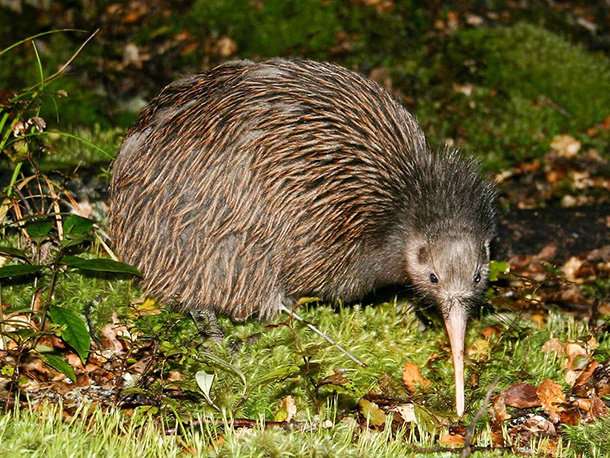
Pan Pac Forest Products, an Oji Group company, is engaged in activities to protect the kiwi, a rare bird species, in collaboration with New Zealand’s Ministry for the Environment, citizen volunteers and other parties. As a part of these activities, the company has designated approximately 40 hectares of land as a kiwi sanctuary to protect kiwi chicks. Chicks and eggs in the surrounding area are captured and collected, and chicks that are captured or hatched from the collected eggs are nurtured in the sanctuary before being returned to the wild.
In June 2019, Pan Pac was named Community Corporate Sponsor of the Year at a national kiwi conference held by Kiwis for Kiwi, a kiwi protection organization.
Environmental Conservation Activities through Pan Pac Environmental Trust (Pan Pac/New Zealand)
The Pan Pac Environmental Trust was established in 2019 by Pan Pac Forest Products Limited
(Pan Pac), a sustainable integrated forest products company in Hawke’s Bay. The trust adds to Pan Pac’s existing community support and sponsorship initiatives in the region. Via the Trust, Pan Pac contributes to projects that benefit the environment and culture of Hawke’s Bay.
A wide range of projects have been selected, from projects protecting endangered indigenous species and eliminating invasive predators to cultural and educational projects, including projects focused on Maori culture and traditions and projects providing scientific educational kits. Local communities and the Trust cooperate to achieve the targets of projects, with the former providing innovative ideas for environmental conservation or restoration and the latter providing the funding necessary to implement the ideas. Through these initiatives, Pan Pac has established strong partnerships with local communities.
Supported projects in 2024
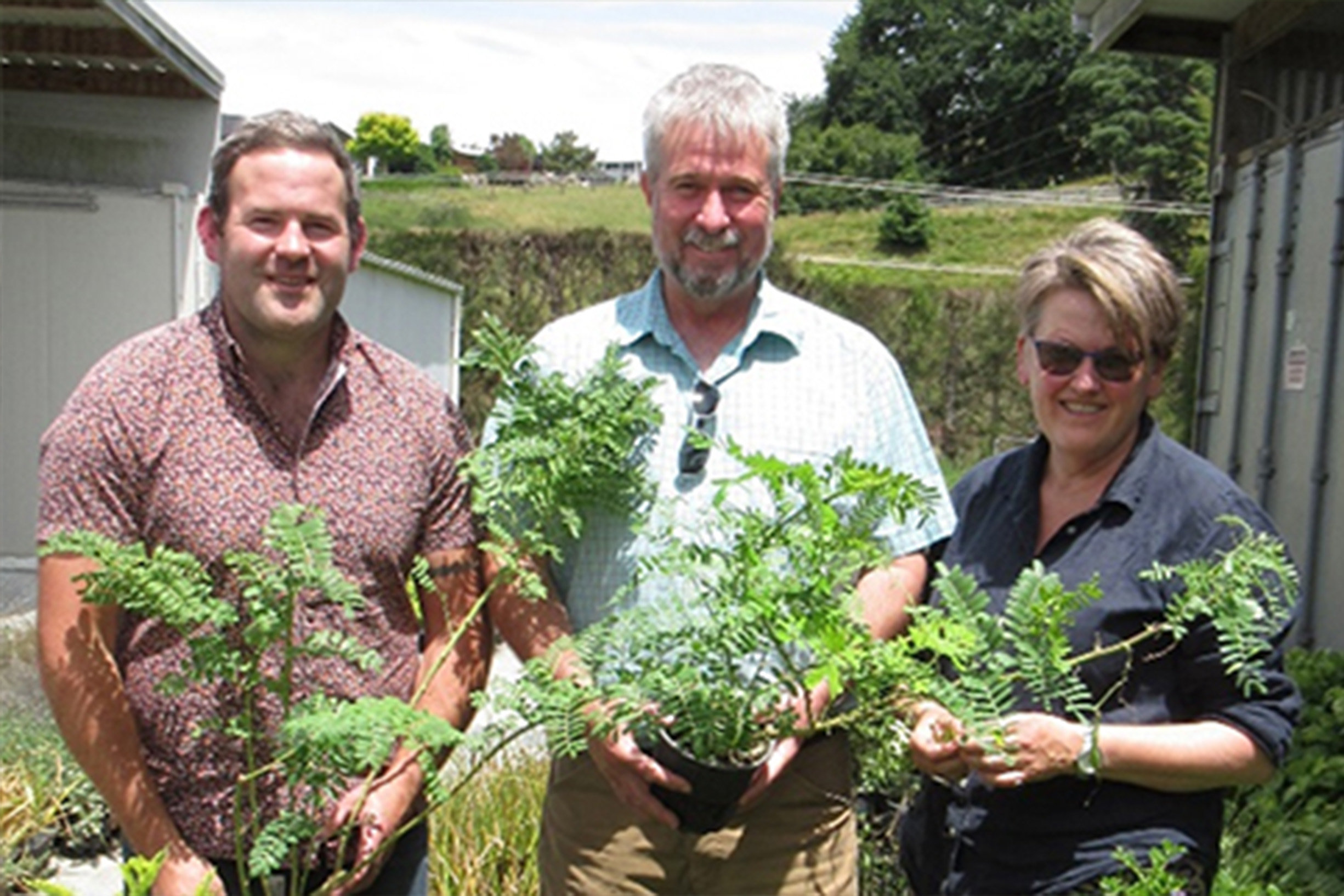
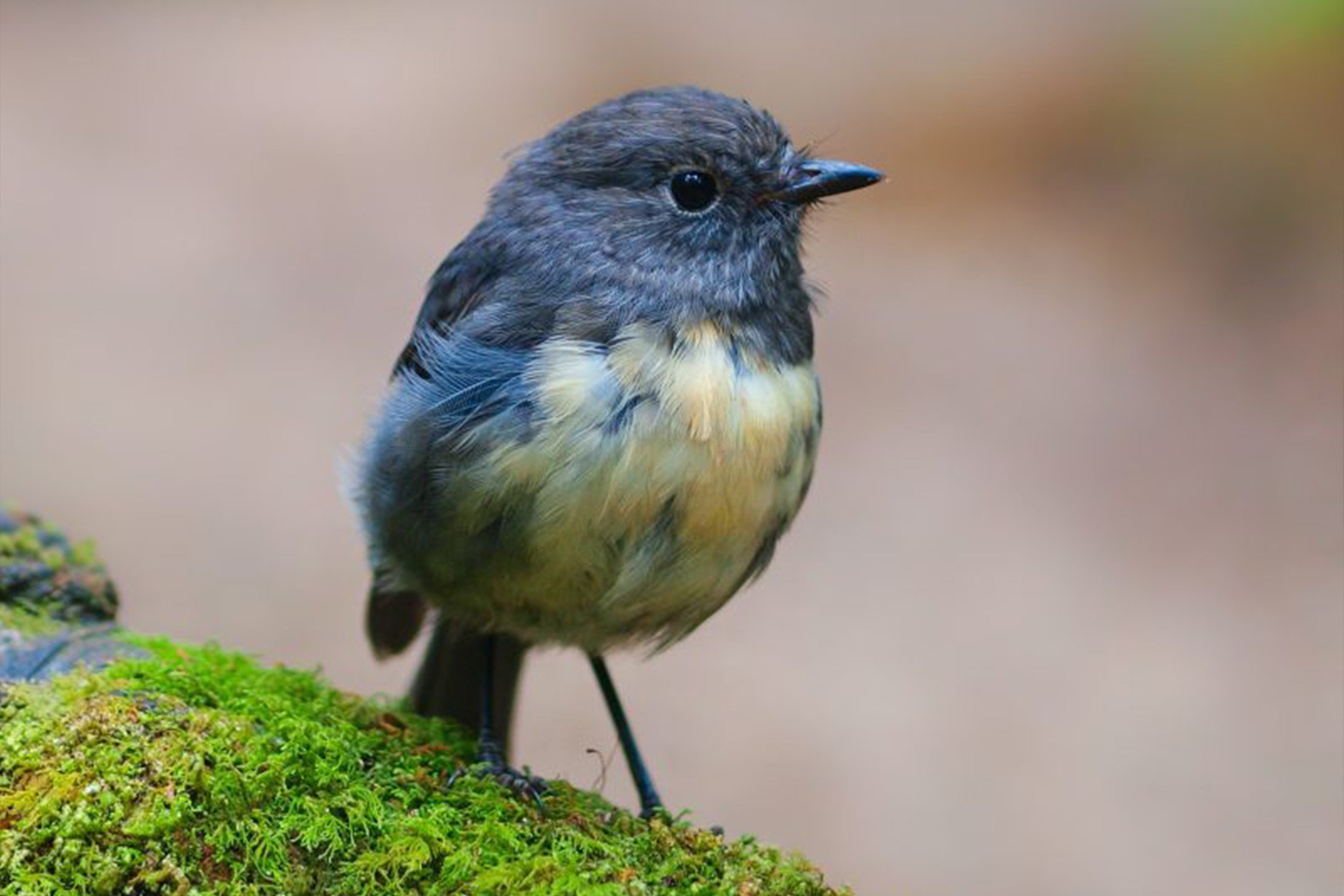
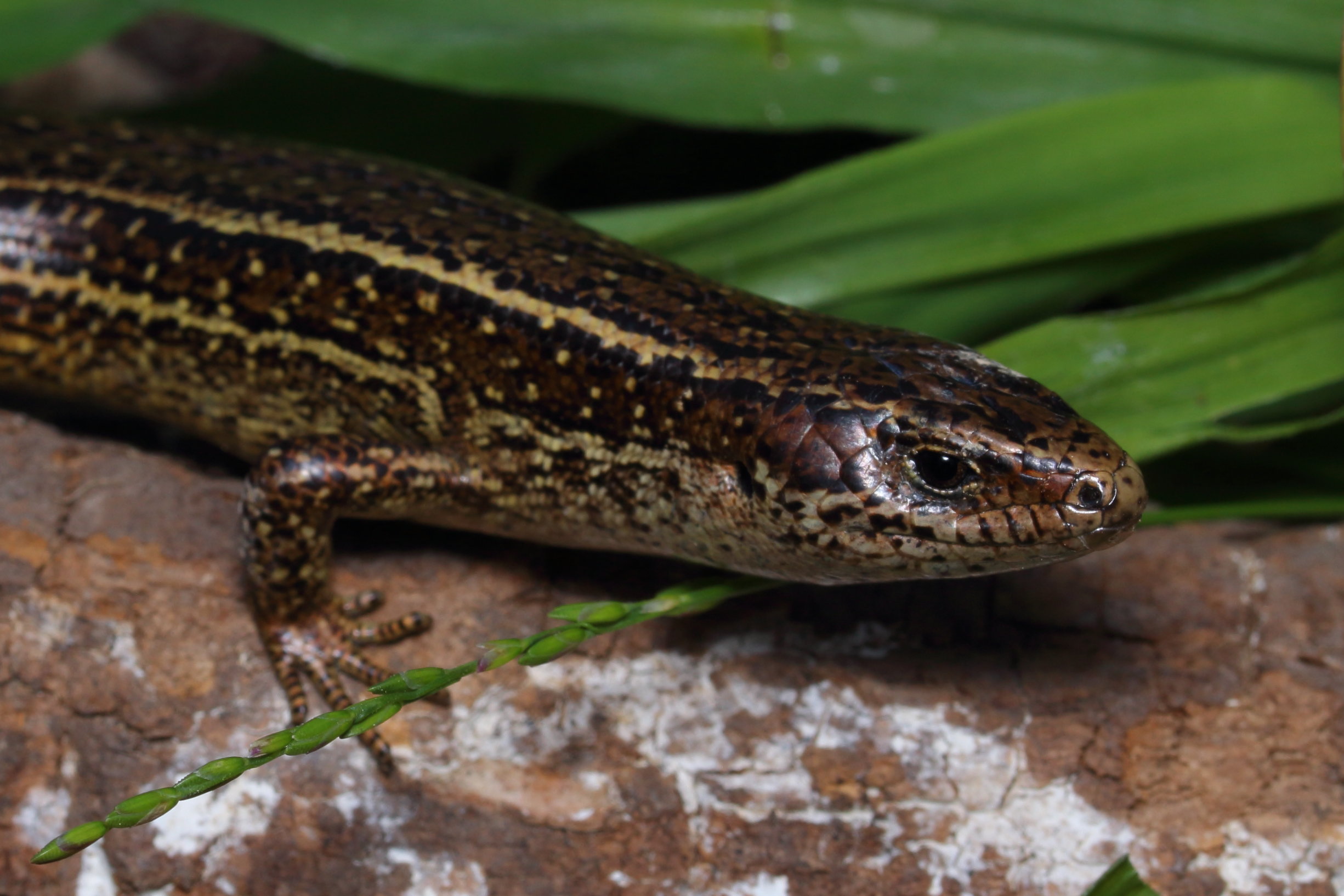
Support activities in past years
Protection of Endangered Species of High Conservation Value (SPFL/New Zealand)
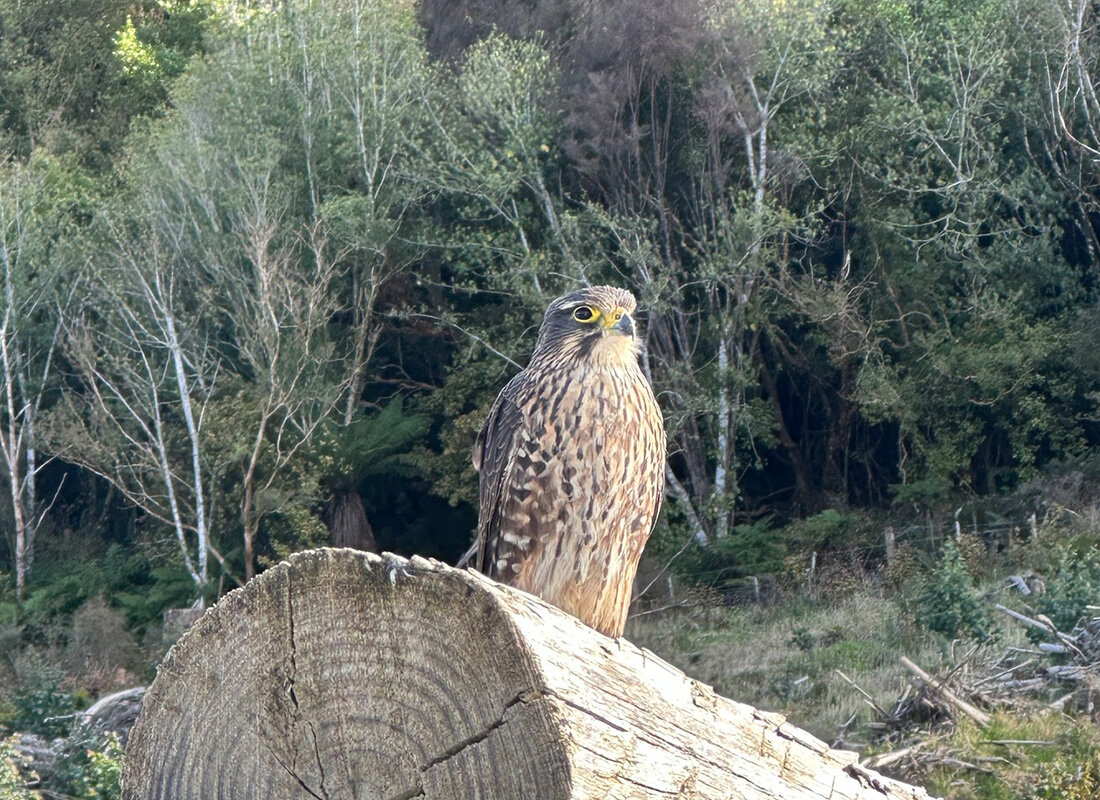
The Company has identified areas of high conservation value in collaboration with local ecologists and others.These areas include the habitats of rarethreatened and endangered (RTE) species or areas where there is the potential they may exist.
The habitats of RTE species are clearly delineated and protected through harvest planning, GIS and on-site measures. Monitoring and reassessment are also conducted every five years to ensure there has been no degradation caused by pests or diseases. Furthermore, when planning and implementing operational activities, all staff and contractors are given a brochure highlighting several RTE species that may be found in the area. This brochure is also posted on the SPFL’s corporate website to increase the awareness of the people entering the forested areas.
Among the RTE species in SPFL's forests, the New Zealand falcon is observed most frequently. An example of this is that when a NZ falcon is attempting to nest in a designated operating area, the activities are postponed as necessary to protect the species.
Brazil
Initiatives of CENIBRA, Brazil
CENIBRA is nurturing a broad spectrum of life by protecting the valuable ecosystem of the Atlantic Forest which is known as reservoir of biodiversity. In collaboration with external research institutions, universities, NGOs and other organizations, CENIBRA also monitors plants, animals and water resources, and is engaged in various activities to protect and conserve ecosystems, thereby enhancing the multi-functionality of forests.
Monitoring results up until 2023 confirm that 27 endangered species of bird and 20 mammal species inhabit CENIBRA’s company-owned forests.
In addition, CENIBRA is engaged in breeding activities for the mutum-do-sudeste (Crax blumenbachii), an endangered bird species, and several other species, and is returning them to nature. It is also implementing a Ecological Corridor Project to link separated habitat areas.
For more information, see Red List, CENIBRA, Brazil.
Activities to protect the mutum-do-sudeste (the red-billed curassow, in the Crasidae family), an endangered species (CENIBRA/Brazil)
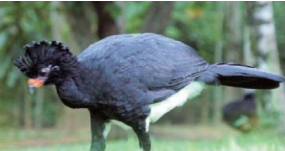
The largest of the Oji Group's overseas plantations is owned by CENIBRA, a eucalyptus plantation and pulp business in Minas Gerais, Brazil. This company owns and manages 250,000 hectares of forests and maintains 100,000 hectares of them as a forest reserve area. Forest reserve areas are protected under Brazil's forest law for biodiversity conservation. CENIBRA also protects native vegetation around rivers and lakes, including its water sources, in addition to natural forests. CENIBRA's Macedonia Farm is a symbol of its biodiversity initiatives. 560 hectares of the farm have been recognized by the government as a private natural heritage reserve (RPPN).*9 The valuable ecosystem of this Atlantic Forest (Mata Atlantica) area has been preserved, and the farm was identified and has been managed as an area of high conservation value in the forest certification process. As of 2020, regular monitoring surveys of its biota have identified 397 species of wild birds and 68 species of medium- and large-sized mammals, including endangered species. Since 1990, the company has been engaged in breeding, rearing, and returning the endangered mutum-do-sudeste (red-billed curassow) and other wild birds that are included in the above to the wild in collaboration with a local NGO. A total of 480 birds of seven species have been released, and more than 300 birds have been born in the wild from the released individuals. CENIBRA has formed a partnership with the state forest bureau, and through this partnership, it has expanded the area where it releases birds. Birds are released not only in CENIBRA's forest but also in a state park adjacent to it. In 2023, an additional ten pairs of mutum-do-sudeste were released in an area close to the Rio Doce State Park, and this species of birds, which had been regionally extinct for more than 50 years, was again added to the list of species in the park.
- *9 RPPN: Reserva Particular do Patrimônio Natural
Japan
Activities for Protecting the Sarufutsu Itou (Oji Forest & Products/Company-owned Forest in Sarufutsu, Hokkaido)
The itou (scientific name: Parahucho perryi) is one of the largest fresh water fish in Japan. It is designated as an endangered species by the International Union for Conservation of Nature (IUCN) and the Ministry of the Environment of Japan. Although they previously also lived in northern Honshu (the main island of Japan), now, their habitat is limited to Hokkaido.
In 2009, the Oji Group established the Sarufutsu Itou Conservation Council with a local NPO, local governments, researchers, and others to protect the itou whose habitat is the river zone of the Sarufutsu mountain forest in Sarufutsu-mura, Hokkaido, and it designated a conservation forest to protect the itou within the company-owned forest in Sarufutsu (approx. 17,290 hectares). We are engaged in protection activities, including the removal of artificial objects which hamper the upstream migration of the fish, and research regarding their spawning beds and the number of individuals which migrate upstream.
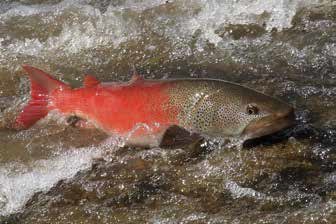
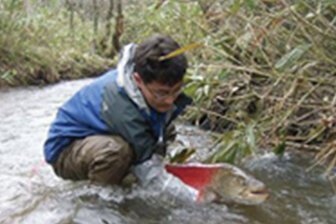
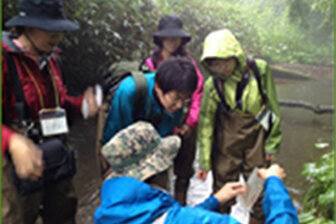
Activities for Protecting the Fairy Pitta (Oji Forest & Products / Company-owned Forest in Koyagauchi, Kochi)
The fairy pitta is a colorful endangered species of migratory bird whose body is approximately 20 cm long.
Since August 2016, the Oji Group has been dedicated to protecting the growing environment of this species of bird in collaboration with the Ecosystem Trust Society within a company-owned forest in Koyagauchi, Kochi. Our activities in the company-owned forest include aiding the construction of walkways used mainly for research, exchanging opinions with the local government and other stakeholders, and creating opportunities to share information.
This company-owned forest was examined by the Ministry of the Environment for certification as a Nationally Certified Sustainably Managed Natural Site. In October 2023, it was officially certified as a Sustainably Managed Natural Site, and in August 2024, it was registered as an Other Effective Area-Based Conservation Measure (OECM) in the World Database.
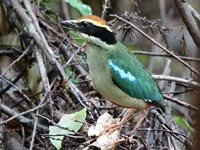
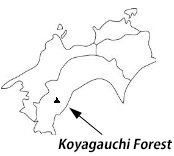
Conservation activities for endangered alpine plants(Oji Forest & Products/ Company-owned Forest in Samani, Hokkaido)
The alpine plant community on Mt. Apoi (located at the southern edge of the Hidaka Mountains, on the west coast near the Cape Erimo, Hokkaido) is home to many endemic plants with place names such as "Apoi," "Samani," and "Hidaka," and was designated a national special natrural monument in 1952.
While the local government and people continue to work together to maintain trails to prevent trampling, patrol the area to prevent illegal digging, and conduct restoration experiments, the Oji Group provides support such as providing a site for regenerating alpine plants.
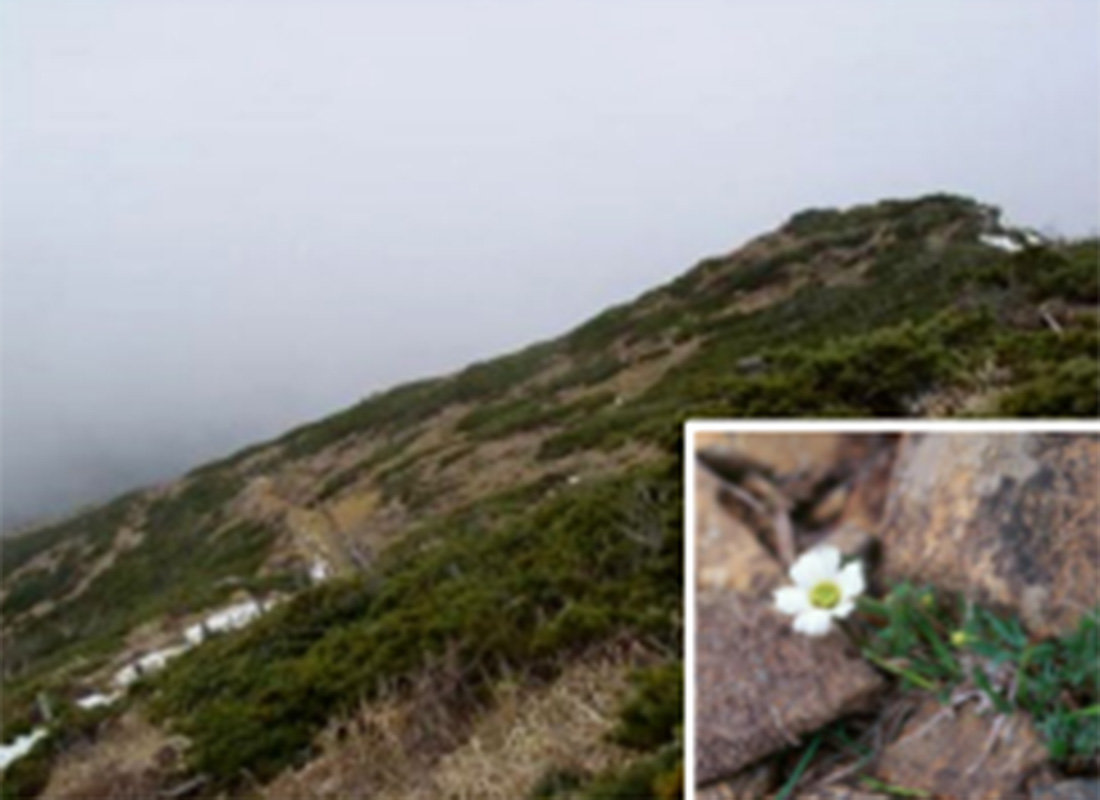
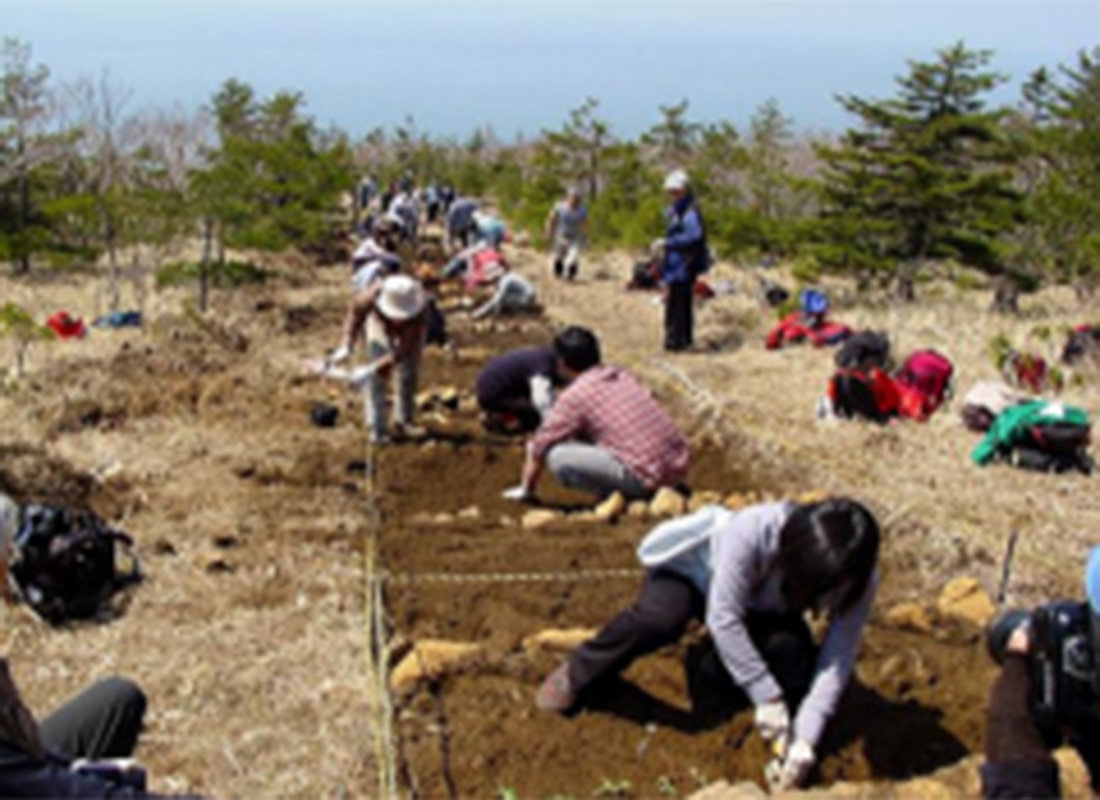
Lily-of-the-Valley Habitat Conservation (Oji Forest & Products/ Company-owned Forest in Kami-Ashigawa,Yamanashi)
The Kami-Ashigawa company owned forest in Fuefuki City, Yamanashi Prefecture is a habitat for lily of the valley, which is a woodland flowering plant that has been designated as a natural monument by the prefecture. This is the lagest such habital outside of Hokkaido Prefecture and over the years it has been protected by local conservationists over the years. In order to maintain this conservation, the Oji Group has leased land to Fuefuki City for free of charge.
Since 2012, we have also contracted local people to patrol the habitat as part of the conservation efforts. The Lily of the Valley Festival, which Fuefuki City organizes every year in late May has helped the city to attract tourists who come to see the many flowers that bloom during this time.
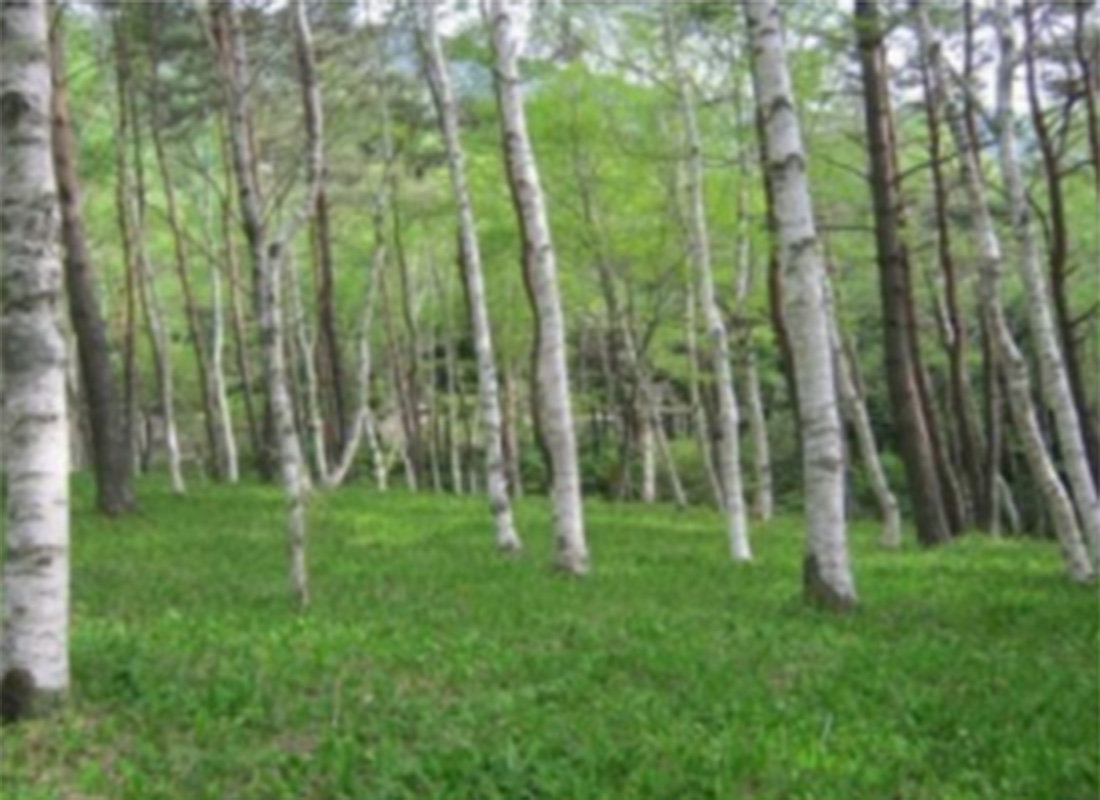
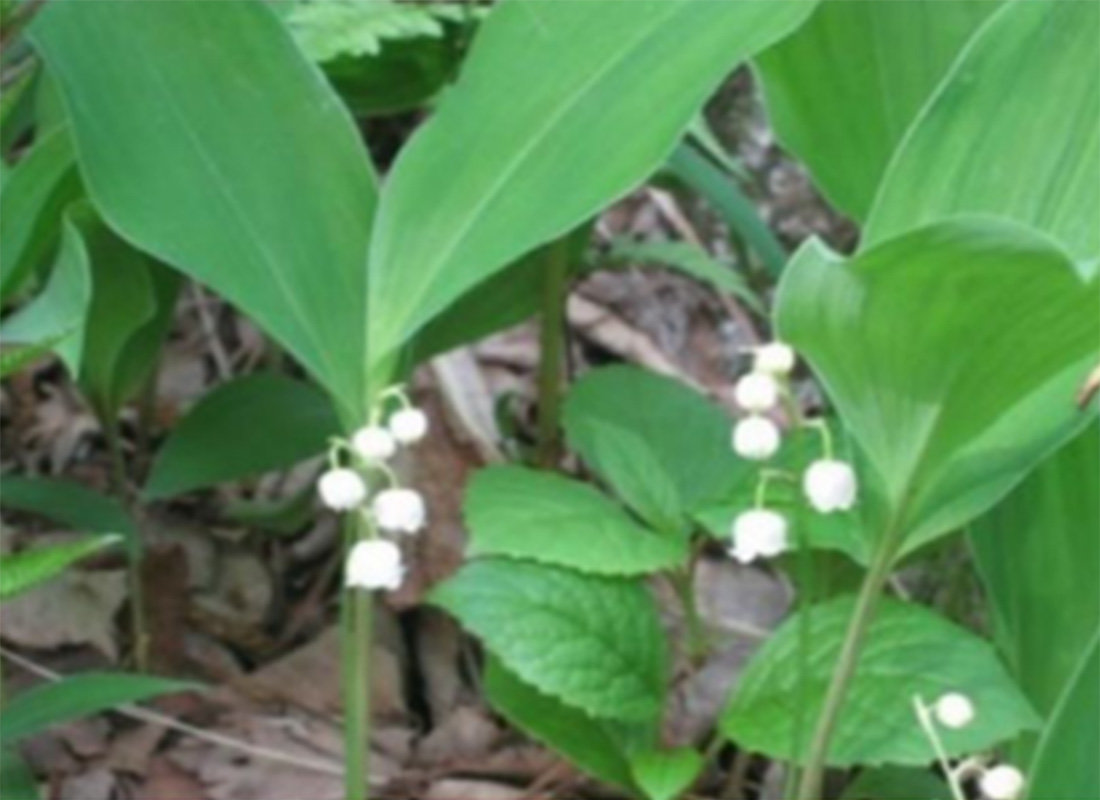
Participation in the 30 by 30 Alliance for Biodiversity
Oji Holdings participates the 30by30 Alliance for Biodiversity, a voluntary initiative led by Japan’s Ministry of the Environment and formed by companies, municipalities, and other organizations. The alliance aims to conserve at least 30% of land and sea areas by 2030, as pledged at the G7 Summit in June 2021. Activities include registering members’ owned or managed lands in the global OECM*10 database and expanding and supporting protected areas. The Oji Group’s Koyagauchi Forest was registered as an OECM in August 2024.
- *10 OECM: Other Effective area-based Conservation Measures: areas other than national parks that contribute to biodiversity conservation, such as company forests and satoyama landscapes.
